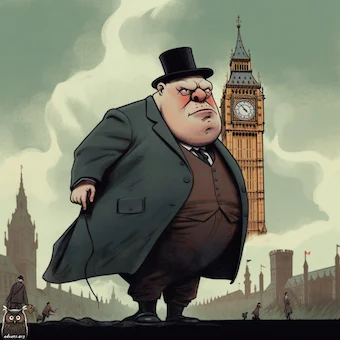On May 10th, 1940, Winston Churchill became Prime Minister of the UK, just as Germany launched a massive invasion of Western Europe. As the world looked on in horror, Churchill’s leadership during the Second World War would come to define his legacy as one of Britain’s greatest statesmen. But how did Churchill rise to power, and what did he achieve during his time as Prime Minister?
Born in 1874, Churchill was the son of a prominent politician and went on to have a distinguished military and political career. He served in the British Army, worked as a war correspondent, and was elected to Parliament as a Conservative MP in 1900. Churchill would go on to serve in a number of ministerial positions over the years, including as Chancellor of the Exchequer and First Lord of the Admiralty.
But it was Churchill’s leadership during the Second World War that would come to define his legacy. At a time when Britain was facing one of its greatest ever challenges, Churchill rose to the occasion with a series of inspiring speeches and decisive actions. He famously declared that “we shall fight on the beaches, we shall fight on the landing grounds, we shall fight in the fields and in the streets, we shall fight in the hills; we shall never surrender”.
Churchill’s leadership during the war was marked by a number of key achievements. He oversaw the evacuation of British forces from Dunkirk, helped forge an alliance with the United States and the Soviet Union, and played a key role in the defeat of Nazi Germany. He was also a passionate advocate for the preservation of democracy and human rights, and famously declared that “democracy is the worst form of government, except for all those other forms that have been tried from time to time”.
Throughout his time in office, Churchill was known for his wit, his oratorical skills, and his love of cigars and whisky. He had a famously contentious relationship with his political opponents, but was widely admired and respected for his leadership during one of the darkest periods in British history.
In the end, Churchill’s legacy as one of Britain’s greatest statesmen is secure. He may have been flawed, but his courage, determination, and unwavering commitment to freedom and democracy make him a towering figure in the history of not just the UK, but the world as a whole.
